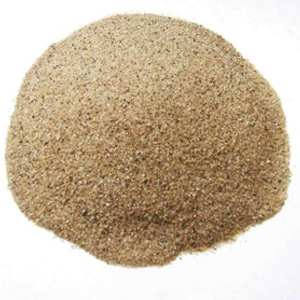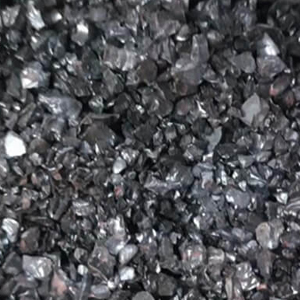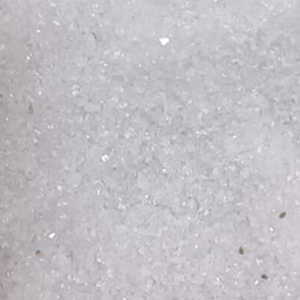QUARTZ
SAND
MANUFACTURERS
Angle Stones are largest manufacture of high quality Indian Quartz Sand Manufacturers in Chennai. All over Chennai Delivery Available, Call Us for information.
Best Indian Quartz Sand Manufacturers & Suppliers in Chennai
Quartz Sand
Black Crystal Sand
Crystal White Sand
Angle Stones is the premier supplier of Indian Quartzite Sand Manufacturers in Chennai. As a natural material that’s mined from the earth, quartzite and phyllites provides excellent strength, durability and easy maintenance. It holds up well in any climate and various weather conditions, so you can expect many years of outdoor beauty. Angle Stones is known as the Chennai’s best Manufacturers of Quartzite stones with expertise in fulfilling large landscaping projects.
Did you find what you were looking for ?
We take pleasure in supplying all kind of stones in custom size and finishing. So if you are looking for something exclusive and different, let us know. We can get you just about anything.
About Quartzite and Phyllites of Chennai
The parent rock for quartzite is quartz-rich sandstone. As sandstone becomes deeply buried, rising temperature will fuse the quartz grains together forming the extremely hard and weather-resistant rock quartzite. Like marble, quartzite comes in many colours, but when pure it is light-coloured. Quartzite tends to have a sugary appearance, and when broken the fractures cut through the sand grains, not around them as with a sandstone. They are having the lowest maintenance material, natural anti-skid, and low water absorbance features.
Uses of Quartzite Manufactured by Angle Stones
- Roofing: Slate rock is used in the construction industry to make roofing shingles and coverings. Slate is preferred over artificial covering materials for its unique physical and chemical properties, moisture resistance, wind resistance, good insulating capability and cold/chill resistance. Slate roofs can last hundreds of years. There are various types of slate roof coverings, including triple, double, scales, French, triple rounded without corners and Abbadini.
- Flooring: Slate is used for external flooring, internal flooring and cladding. Slate floors are durable, nonporous, and require little maintenance.
- Landscaping: Slate rock is used in various residential and commercial landscaping projects for its weather-resistant and pollution-resistant properties. It is used to pave paths, surround swimming pools, cover outer walls, make risers and treads on stairs, and even for patios.
- Garden: Crushed slate provides gardeners with an aesthetically pleasing and inexpensive material for landscape design.
- Crushed or ground marble is also used in paving roads and in manufacturing roofing materials and soil treatment products. The color of crushed slate also varies from black to hues of red, blue, purple and gray. No matter the size of your lawn, crushed slate can add an elegant touch to your garden design projects.
Stone Finishes available at Angle Stones
- Both surfaces natural CLEFT – If a slate tile is clefted, the surface is kept the way it was when it was quarried. This means the surface will be rough, bumpy and uneven. Cleft slate provides great traction and is an excellent slip-resistant surface, but can be uncomfortable to walk on without shoes.
- One surface HONED another natural – A honed finish means that the slate has been slightly sanded, so it has a natural, slightly dull look. Honed slate works well in all types of landscapes and provides good slip resistance for a slate walkway.
- Fine POLISHED surface – Polished slate is fairly rare because slate is not really suited for a glossy finish like marble and granite. A polished finish on any stone makes the stone slippery, so polished stones are best used indoors where this is not a problem.
- Machine cut with TUMBLED
- One surface ANTIQUE / brushed another calibrated
Edges Finish Available
- Machine cut
- Full bull nose
- Half bull nose
- Chamfered / Beveled
- Hand cleft / cut
Quartz Applications :
1) Jewellery and gemstones
For centuries, quartz has been used in jewellery production and as gemstones. The hard, publishable, crystalline and durable nature of quartz make it an excellent material for this purpose. The varieties of quartz popularly used as jewellery and gemstones include Citrine, Amethyst, Emetine, rose quartz, Adventuring, and Opal. Quartz with microcrystalline (cryptocrystalline) structures like Agate and Jasper is also used as gemstones.
2) Glassmaking
Glassmaking is one of the primary uses of quartz. Glass is manufactured from a chemical compound known as Silica dioxide (SiO2) (a colourless crystalline compound found as quartz, sand or flint). This silica dioxide (which must be 99.9% exceptionally pure) is melted and allowed to cool down into whichever shape or dimension desired. Optical-based quartz crystals are used in the manufacture of lasers, microscopes, telescopes, electronic sensors, and scientific instruments.
In India, almost half of the quartz consumption is in the glass industry. Quartz sand is commonly used in the Indian glass industry for making container glass, flat glass, plate glass, specialty glass, fibreglass, bottles, table glassware, and other glassware. Quartz supplying industries such as Unique Crystal minerals LLP supply a large amount of quartz sand which is widely used in the Indian Glassmaking Industry.
3) Watches and clocks
Quartz crystals contain oscillators that possess the ability to vibrate at precise frequencies that helps to regulate the movement of the watch or clock, thereby making them accurate timepieces. Quartz crystals possess the piezoelectric effect (the ability to produce electricity when subjected to mechanical stress) which is also used to keep a tab on time.
4) Foundry materials (Metal Casting Industry)
Quartz sand is often blended with cohesive agents such as clay, resin sodium silicate, and oil, and used for the purpose of moulding and metal casting. The properties of quartz sand such as high melting point, high strength and refractoriness help in the process of metal casting. Also, microcrystalline quartz is used to smoothen out crude edges on metals after they are cut, cast or drilled.
In the metal casting industry, Quartz sand is also added to molten metals for the process of removing impurities, mostly oxygen. The sand gets bonded with the impurities and is then easily removed.
5) Refractory industry
Quartz sand is used in the production of refractory bricks because of its sheer strength and resistance to heat. It is also used as a flux to smelt out crude edges on metals after they have been cast, cut or drilled.
6) Abrasives
Due to its hardness (it is harder than most natural minerals), and resistance to corrosion, quartz sand is considered a wonderful abrasive. Also, it is used for sandblasting, glass grinding media, scouring cleansers (powder), and sanding and sawing grit.
7) Petroleum industry
Silica sand, alongside water and other chemicals under high pressure, is forced down into a bedrock formation via a well. The high pressure fractures the bedrock, the silica sand injects into the fractures and holds it in place, creating a passage for the flow of natural gas from the bedrock formation into the well. This process is known as hydraulic fracturing.
8) Kitchen Countertops
Engineered quartz stone, which are industrially made from raw quartz, are popularly used as countertops and slabs in residential and commercial buildings.
Certain characteristics of engineered quartz stones distinguish them from natural stones such as granite and marble. The non-porous property of quartz makes it resist retaining stains. Hence, quartz countertops are easy to clean, does not retain stain, attractive, and luxurious.
9) Sharpening tools
Novaculite, a form of cryptocrystalline or microcrystalline quartz, is used in making medical incision devices, cutting weapons, and sharpening cutting tools for thousands of years even up to this day. Hones are used to sharpen razor, while whetstone or smooth stone is used to sharpen the edges of tools and knives.
10) Crucibles
Laboratory Crucibles are the containers that are used for holding chemicals when chemical or thermal tests are performed. Quartz has a very high melting point and is chemically inert, and so, is employed into making quartz crucibles that are used in the laboratories for performing chemical reactions and tests. The advantages quartz crucibles offer includes low expansion, thermal shock resistance, and excellent dimensional stability. Fused Quartz made from quartz granules is generally used in making such vessels.
Applications:
Cement Sheets, Sodium Silicate, Refractory & Glass, Construction, etc. With our state of art manufacturing unit, we are capable of providing customized processed China clay to customer’s specification in quality and delivery schedules they want.









